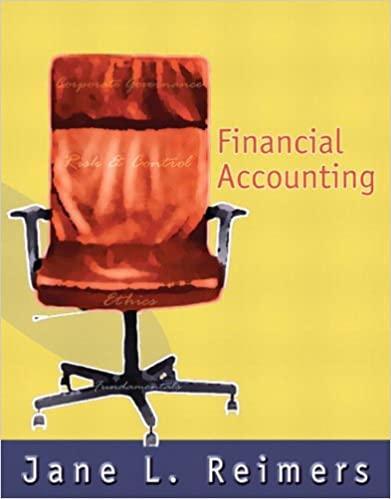Question
Instruction: Read the short case study and answer the question below it. Slapping extra tariffs on cheap dumped imports can be counter-productive even when justified,
Instruction: Read the short case study and answer the question below it.
Slapping extra tariffs on cheap dumped imports can be counter-productive even when justified, Peter Mandelson, the then EU trade commissioner, told a conference in the Netherlands in 2007. He argued that anti-dumping tariffs and quotas could harm Europes own manufacturers, which have increasingly outsourced the production of shoes, textiles, light bulbs and other goods, aiming to maintain a competitiveedge against cheaper Asian rivals.
Imposing punitive measures . . . is often both justified and right. But if it is inhibiting companies from pursuing rational production strategies . . . it can also be counter-productive, he said. While Europe should tackle unfair trade, globalisation meant the definitions of what was European-made had become blurred.
Mr Mandelson said the European Commission had struggled before finally deciding in late 2007 to phase out anti-dumping duties on energy efficient light bulbs made by European companies in China over a year. He had wanted the punitive duties abolished immediately, but fellow commissioners won more time to protect Osram, the German company that is the sole European-based manufacturer. He said: If producing cheaply in China helps generate profits and jobs in Europe, how should we treat these companies when disputes over unfair trading arise?
A further case was leather footwear. The imposition of tariffs on shoes for two years in 2006 led to duties of 16% for China and 10% for Vietnam. A Swedish government report says the duties have caused heavy losses among shoe importers, although these companies may be generating as much as 80% of each shoes value in the EU through product design. Surveying five typical EU shoemakers, the Swedish governments National Board of Trade says the companies have become globalised, creating jobs and investment in the EU.
Even a 20 ($27, 13.50) pair of womens shoes adds value to the European economy. Intermedium, a Dutch company, pays 4.40 to bring the shoes to Europe, then sells them to retailers for 6.65. By that point, 2.45 of the total cost is classified as European value-added. Intermedium and its Chinese supplier make margins of less than 10% each.
For a more expensive 150 pair of shoes, DC of Milan charges retailers 77.80 of which leather accounts for a third. But 40 of 50 value-added is classed as European, mostly going to research and development. The European value-added is 79%, says the report. Is this a European or Vietnamese shoe?
Italy pushed hardest for the duties. Companies still producing entirely in Europe have benefited. Shoe importers, meanwhile, can simply switch their supply source to another low-cost country. Globalised manufacturers, however, could not be so flexible. Since prices were fixed with retailers, most of those EU-based shoemakers had to absorb cost increases.
Question
What does this case study suggest in terms of the free trade versus protectionism debate?
Step by Step Solution
There are 3 Steps involved in it
Step: 1

Get Instant Access to Expert-Tailored Solutions
See step-by-step solutions with expert insights and AI powered tools for academic success
Step: 2

Step: 3

Ace Your Homework with AI
Get the answers you need in no time with our AI-driven, step-by-step assistance
Get Started


